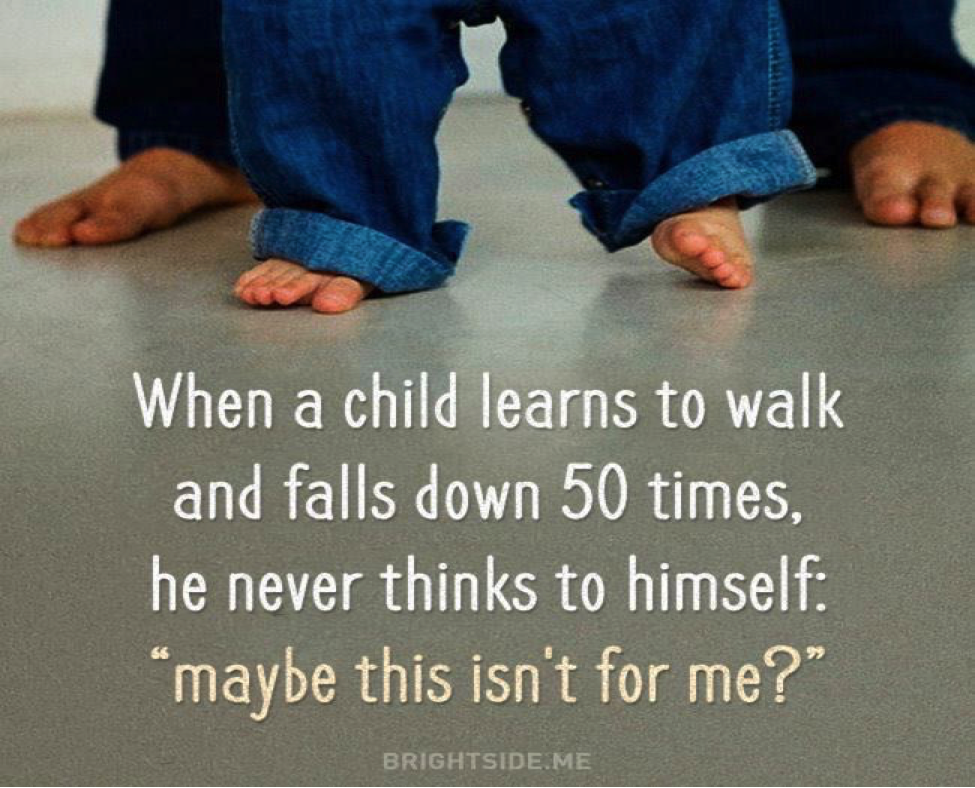Why Our Kids Need To Learn Resilience, Now More Than Ever

Ok. I just did a word check on this. It’s long. But this is such an important topic for you and your children, that more time and space was devoted to this blog than I usually do. As you read this, you’ll understand why.
What is resilience?
First, let’s define the term. The dictionary defines resilience as follows: the ability to become strong, healthy, or successful again after something bad happens; the ability to recover from or adjust more easily to misfortune or change.
Children who can handle adversity are in much better shape to rebound from the inevitable challenges that we all face in life. These challenges can include problems in school, peer pressure, bullying, family stressors such as illness, separation, divorce, or the death of a loved one. As adults, we can certainly add more to the list.
The sooner our children develop this fundamental life skill, the better.
Here’s why. In addition to the stressors in our own immediate lives, our world is changing at a rapid pace. Life is also becoming ever more complicated. And there’s no indication that this trend is going to slow down at all, much less anytime soon. For many of us, there is a natural tendency to want to protect our children from some of this. That is certainly understandable.
As the parent of three children of my own, I get it, and certainly understand the inclination in this complicated world to hold our children tighter, keep them closer, and protect them from a world that would devour them.
But we’re not always going to be around to help them navigate the choppy waters we encounter at every stage of life. Our children need to develop strong coping skills.
Current Trends
In recent years there has been a growing tendency for many parents to “hover” over our children in order to prevent them from feeling any pain or suffering. We believe that by “helicopter parenting,” we will help our children feel safe and protected from bad feelings and experiences. But this hovering comes at a cost. The emerging scientific data is strongly indicating that being over-protective of our children does them as much, if not more, harm because they believe they can’t get along without their parents or someone else in the role of parent. They don’t develop a strong enough sense of their own independence and self-reliance.
The Excessive Need for Safety Comes With A Cost
It’s become so endemic that nowadays, parents can get DCFS called on them for simply letting their children play outside unsupervised. Without the freedom to make mistakes or push their comfort levels, we are raising a generation of kids who are, in so many ways, increasingly ill-equipped to deal with real life. They now require “safe spaces” on their school campus because they cannot tolerate another viewpoint that differs from their own. Some are now referring to them as the “Snowflake Generation”. This is not a hallmark of resilience and, instead, leaves them and others viewing life from the perspective of either being a victim or a potential victim when others may not share their views.
Resilience Promotes Survival, Confidence, and Emotional Well-Being
Throughout nature, you’ll find that the survival of any species depends on the individual resilience of each member. Human beings are no different. Particularly in today’s social climate of violence, fear-mongering, class warfare, and a media that promotes victimhood and an “us vs them” mentality, not to mention how incredibly competitive life has become academically, socially, and in the world of work.
No matter their views, we need to raise generations that are willing to speak out for what they believe is right, even when it is uncomfortable. We need entrepreneurs that can innovate while managing a certain level of risk. And at a more basic level, we need individuals, couples, families, and communities that are willing to persevere through trying times without jumping ship and expecting someone or something else to always swoop in without us expending any effort of our own.
In Defense of Backing Up
I’ve helped raise our three children, so I understand first-hand that letting go of the reigns even a little can be scary as a parent. What if they fall and break a bone? What if someone breaks their heart? What if I could have saved them from that pain?
Of course, no one wants to invite pain or heartache into their children’s lives. But, I will tell you, those moments when you do let go (even if only a little) and watch them triumph over their fears or frustrations by themselves…there really is no greater reward as a parent. The key here is discernment – knowing when to let go and when letting go is too much. And if you’re observant, trust me, your kids will let you know when they need you and when they don’t in subtle and in not so subtle ways!
But raising resilient kids doesn’t simply mean backing up or letting go. So, if even the thought of letting go stirs up some resistance in you, don’t stress – I’ve got a slew of ways you can nurture their resilience while increasing their independence. You might be doing some of these already without even realizing its profound role in nurturing resilience in your child.
10 Ways to Nurture Resilience in Your Kids
1. Understand the difference between safe and unsafe struggle.
This is how we undo the helicopter parenting. We acknowledge that we have been nervous wrecks when our child was climbing on the playground at 18 months. When they turn three though, it might be OK for us to hang back and enjoy our coffees a bit more because our child now has a healthy sense of fear over challenges she’s not sure about and a healthy amount of confidence for the challenges that are within her limits. We understand that, though painful, our 7th grade child might be able to handle being rejected by an old friend that wants to impress the cool crowd, but that relentless teasing and bullying from the so-called cool crowd is a call for intervention. Having strong discernment as a parent for when to step back and when to step in is crucial.
2. Encourage your child to feel it all.
When your child is struggling with something, encourage them to feel their feelings. By this I mean, acknowledge and validate the frustration, embarrassment, sadness, anger, fear or any combination of feelings. For small children, this starts with teaching them the language they can use to describe what they feel or how to recognize emotions in others. Saying things like “I see that you have tears right now. Are you feeling sad?” or “I hear that you are yelling. Are you angry right now?” will help them to begin to verbalize and understand what they feel instead of acting out on impulse.
For older kids experiencing a difficult situation, such as a death in the family or a conflict among classmates, give them some one-on-one time with you to discuss everything they feel. Be careful not to dismiss any of it as trivial or inappropriate. Bonus points for you if you can validate their feelings with a similar experience you’ve had at their age. The advantage of encouraging your child to identify and express their thoughts and emotions is that this is vital for their growth and development. It helps them know who they are at a deep level. This life skill, among others, helps foster their resilience.
3. Teach emotion management.
While it is important to allow them to feel what they feel, it is equally important for them to learn tools to simultaneously coach themselves back to a place of equilibrium before making choices or acting out. This can be done a number of ways, from teaching mindfulness or yoga to giving them a creative outlet (such as sketching or journaling). It can even be something as simple as deep breaths or counting backward from 10.
For smaller children, you can try having them pretend your pointer finger is a birthday candle and ask them to blow the imaginary candle out to teach them deep breathing. Visual distractions can also help; such as wind chimes or snow globes. The key here is to not eliminate the emotion, but rather to help them reach a place of calm and clear-headedness so that they can make better choices for how to respond.
4. Be a mentor, not a savior.
This is the golden rule of teaching resilience to children. Don’t ignore, avoid, coddle, or criticize. Hold space with your child and offer guidance when they are stuck, but don’t swoop in every single time they are presented with a challenge. Resist your own need to solve the immediately solve the problem for them or try to remove the problem altogether. The most basic way you can do this is to say two things: “I understand you are feeling this way.” and “What are some ways you can handle this?”
5. Allow disappointments to happen.
Don’t give in to every request your child makes – it is important for them to know that sometimes in life, we don’t always get what we want and that we can make it through just fine without. Don’t try to save your child from failure – you’ll only deprive them of the great lessons our failures are intended to teach us. Show them that the real failure is not trying. There is an old Buddhist saying that I think easily applies here: “The Master has failed many more times than the beginner has ever tried.”
6. Encourage your child to listen to their inner voice.
It seems that the more modern our world becomes, the more we dissociate from our most basic nature. We live in our heads and either intellectualize everything or live in denial.
But the reality is often times if we just get quiet with ourselves and ask ourselves, “What is the real truth right now?”, the inner wisdom or intuition is already there. In fact, our bodies often know it before our brains do – which is why we feel nauseated when something feels unjust or our heart rate increases when we feel unsafe.
Teaching our kids to tap into their own inner wisdom at a young age will serve them well for the rest of their lives. Helping them develop this crucial life skill, helps to set them up for success in life because they will learn to rely on their own developing resilience. We all know that our children are going to develop courage in life. Having the wisdom to know that it’s important to seek the truth will help them develop their courage.
7. Accept your child fully.
We all try to imagine what our kids will grow up to be and it’s hard not to hope that they’ll be great at sports like one parent or the musical genius we never were. But, of course, we know that our children are their own people, with their own interests, their own gifts, and their own struggles.
One of the best things you can do for your child is to accept your child for exactly who they are, always. Not just who they once were or who they’re trying to be, or who you think they should be. Your being able to sit with them through all their mistakes and challenges and still love them just as they are will provide them with the strength and security to persevere through struggles and to know that they are worthy of love (not only from you but also from others) no matter what their flaws.
8. Teach that independence and seeking help are not an either/or.
As they say, “Acting tough is just that – ACTING.” There is real strength in showing emotion, in revealing vulnerability, and in receiving assistance to make it through a situation.
No one lives in a vacuum and no one makes it anywhere without the help from someone at some point. Teaching a child that they must struggle alone tells them that their struggles are unique and failure is something to be ashamed of. This obviously couldn’t be further from the truth.
Instead, teach them that asking for and accepting guidance from someone else who understands their struggle can catapult their growth. We call this “healthy dependency” if it helps the person feel stronger about themselves and comforted by knowing that they don’t have to do it all alone. We all need to know that we have friends, mentors, loved ones, colleagues, and peers who we can trust are there for us. It’s good to have “battle buddies” throughout our lives.
9. Celebrate the effort, not the result.
There was an interesting study on NPR a few years back about the differences in the way parents in the West and parents in the East define and nurture success. It turns out, the common American practice of celebrating the victory, rather than the effort behind it, tends to produce children and young adults who give up if something doesn’t come easily to them. If they try and struggle, or worse, fail, then they decide they themselves are a failure and simply not good at the activity at hand.
Children who were taught to focus excessively on “results”: e.g. “You almost had straight ‘A’s. What’s up with the ‘B’?” is a rather shaming to a child. As a result, American children are much more prone to feeling anxious, unduly stressed, and depressed because the emphasis on achieving perfection that is imparted to them in so many ways, erodes their ability to feel genuinely good about themselves when they inevitably fall short of an imaginary and unrealistic expectation of being perfect. Needless to say, this approach does not build resilience.
Conversely, parents and teachers in Japan celebrate the struggle–the effort behind any successes, not the successes themselves. By that standard, the most “successful” child is the one who grapples with a puzzle the longest without giving up. I can’t think of a clearer illustration of nurturing resilience than that.
10. Model resiliency.
As with anything, “Do as I say, not as I do” generally doesn’t work well here. One of the best ways you can teach your child resilience is to allow them to see you struggle, fail, and try again. We do this by acknowledging when we make mistakes in parenting–by saying, “You know what, I was wrong to yell at you like that. I’m trying to work on my patience. Maybe we can work on it together.” Other ways you can show your child resilience: By standing up for what is right in the world despite negative backlash. By practicing healthy habits like exercising, or learning new hobbies or job skills. If you’re divorced and dating again, you might allow your child to witness this process, so that they understand that your ideal mate doesn’t just suddenly appear out of nowhere. And of course, through other universal challenges, such as the ending of a relationship, the loss of a job, or the death of a loved one, or reacting to national and international tragedies.
Allow them to see your own struggles and grief. This accomplishes two things right away: 1) they realize that they are not the only ones struggling and, 2) when they see your struggle and how you rebound, you are modeling resilience for them. It’s one thing for them to be told about resilience as a concept. It’s something else entirely when we let our children see our struggles so that they can learn how to rebound, and 3) when we let our children see us work through some of our own challenges, it gives them permission to not have to feel perfect and, that alone, can be a great builder of resilience for them.
Letting your child see your own confusion, perseverance, courage, and ability to solve problems gives them an intimate lesson about resilience in the face of life’s challenges. This provides them with a tangible example of how normal it is to begin with to experience problems in life, to struggle with them as we all do, and to see first-hand that things can get better and how to accomplish this. Letting our kids learn how to endure hardship and giving them the tools to do so, is one of the greatest gifts of love we can ever possibly give them. Skinning their knees is vital for their growth.
I hope that this article was helpful. If you have specific questions about your own child, give me a call and I’d be happy to offer you a free 15-minute phone consultation.















5 Friday Faves – Raising Mentally Strong Kids, Syrian White Helmets, Combating Stress, Frosted Lemonade, & the Latest Video by my Favorite Guitarist | Blog – Deb Mills
[…] 1) Raising Mentally Strong Kids – We all want our children to grow up capable to thrive in the world as it is today. To have capacity to both work and lead in situations that might prove stressful, even immobilizing if they hadn’t developed certain strengths. For them to be mentally Strong, mentally tough, resilient – what do our children need from the adults in their lives.Photo Credit: DrGaryBrownTherapy […]
Is Chronic Conflict Ruining Your Marriage…and Your Kids? | Gary Brown
[…] shows that kids are very resilient and highly adaptive and can usually cope with difficult, yet normal, situations like separation […]
How to Create the Best Possible First Day Back to School for Your Child…and You!
[…] and new adventures. Model relaxed, cheerfulness (even if you’re nervous for them) and trust that your child is resilient and will do just […]